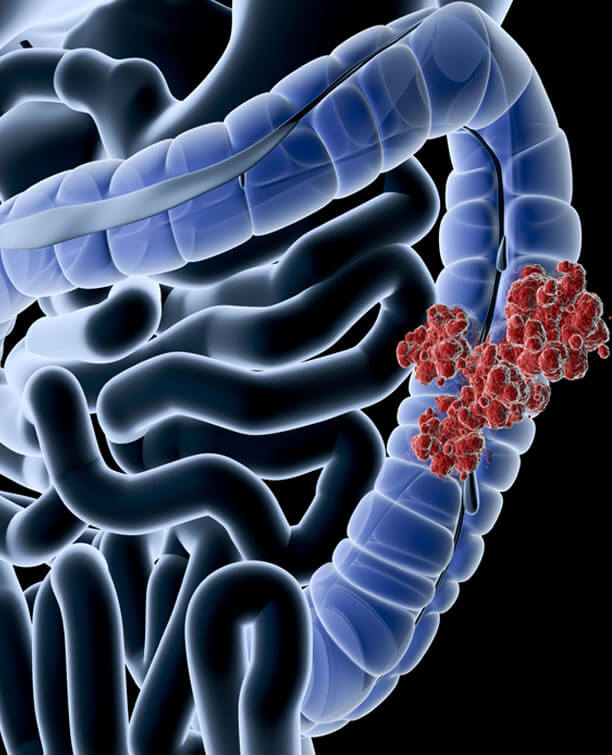Colon cancer usually starts as polyps (which are small clumps of cells) on the lining of the colon. They do not show any symptoms in the beginning stages and therefore are very difficult to diagnose. Colon cancer usually affects older people and very rarely the young. Therefore, a regular screening test in high-risk individuals is advised to stop the polyps from becoming cancerous by removing them completely. The risk of colorectal cancer can be more if close blood relatives had colorectal cancer at an early age.

Adeno means glands and carcinoma is a kind of cancer that develops in the epithelial cells. Adenocarcinomas of the colon are the growth and development of the tumors in the lining of the large intestine. They usually start in the inner lining of the large intestine and spread out to other layers from there.


The ultimate goal after treating the patient is to ensure that cancer has been removed and that its spread has been contained. Treatment for adenocarcinoma depends on the stage of cancer. The three most common options for the treatment of colon cancer are surgery, chemotherapy and radiation therapy. Treatment Protocol for an individual patient will be finalized after a thorough review of all disease-related reports in a multi-disciplinary meet (MDT).

The surgeon may remove the entire colon or a part of it. This procedure is called a colectomy. The basic aim to remove the tumor with a healthy margin along with adjacent lymph nodes in an adequate number for accurate histological staging. Selected patients may require temporary or permanent stoma (colostomy/ileostomy) at the surgery. These tumors usually have distant spread in the liver and if feasible part of the liver will be resected to achieve cure.
Also known as keyhole surgery or a minimally invasive surgery (MIS), laparoscopy involves the use of a very thin tube called a laparoscope, which has a tiny video camera and a light at the end of it. This is sent into the abdomen through a cannula, enabling the surgeon to view the insides of the abdomen on a monitor outside. With small movements and tiny instruments, surgery is completed and specimen carefully removed through small incisions made in the abdomen. There is minimal blood loss in this surgery and it is very precise. Recovery time is faster when compared to open surgery with also less scarring.
Radiation therapy is often required for rectal cancer and is used along with chemotherapy usually before surgery. Radiation therapy involves the use of high-energy x-rays or other radiations to completely kill the cancer cells or keep them from advancing.
Chemotherapy uses drugs to kill the cancer cells or stop them from dividing. When chemotherapy is ingested through the mouth or the injected into the vein, the medicine directly enters the bloodstream and attacks the cancer cells throughout the body. This is called systemic chemotherapy. Chemotherapy is advised based on the type and stage of cancer.


Our gastroenterology services treat all kinds of digestive system disorders. Book an appointment now with our GI Specialists and have the best team of doctors treating you!